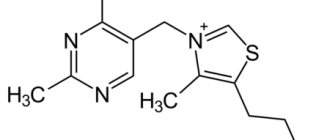Endocrinologist, nutritionist, creator of the author's nutrition program Vadim Krylov:
— In relation to coffee, all people are divided into two types. The first ones break down caffeine quickly, the second ones slowly. These features are innate, they are determined genetically and are associated with enzyme activity. For people whose body quickly breaks down caffeine, coffee is beneficial and even affects life expectancy, increasing it. But for the latter, for whom this substance takes a long time to break down, coffee is harmful.
As a result of research on the benefits and harms of coffee, scientists have found that for those who quickly metabolize (break down) caffeine, 1-2 cups per day reduce the risk of myocardial infarction and stroke by about 20%, 3-4 cups of coffee per day reduce the risk of these states by 12%, and 4-6 cups - by 3-6%. For slow metabolizers, 1-2 cups per day increases the risk of heart attacks and strokes by 3-6%, 3-4 cups by 12%, and 5-6 cups by approximately 20%.
Article on the topic
Soluble quality. Results of examination of coffee in cans In the West, special genetic tests are sold that can be used to determine whether you quickly break down caffeine or not. But in fact, this can be understood even without them. It's simple: if after a cup of coffee you feel cheerful, joyful, and toned, then you are a fast metabolizer and coffee is good for you. If these effects do not appear immediately, but after 4-5 hours, then coffee is bad for you.
The aroma of coffee and its unique taste give fans of the drink real pleasure. But, if we talk about its benefits and harms, there is no clear answer. Coffee beans contain a lot of bioactive substances, both beneficial and not. The most famous of them is caffeine, which has a lot of pharmacological properties and, unfortunately, even has side effects.
In addition to caffeine, coffee contains beneficial antioxidants. Studies have shown that after a cup of aromatic drink, the amount of these substances in the blood increases. The best known and most powerful antioxidant is chlorogenic acid. It helps lower blood sugar, protects the liver and prevents the development of cancer. However, heavy roasting of beans, milk and sugar added to coffee reduce antioxidant activity.
Foam on top, foam on bottom. How to make lattes and cappuccinos at home Read more
There are also so-called diterpenes in coffee. The most famous of them are kafeol and cafestol. Regular consumption of coffee increases cholesterol. But, on the other hand, they prevent the development of Parkinson's disease - the protective effect of coffee against this disease is well known.
But the most negative substance formed when roasting coffee beans is acrylamide. It is classified as a carcinogen. In addition to coffee, acrylamide is found in bread, pastries, any fried potatoes (fries, chips, etc.), cookies, crispbreads and all products with an appetizing crispy crust. However, scientists and experts are inclined to believe that coffee is not a carcinogenic product due to the presence of acrylamide, since no direct connection has been found between drinking coffee and the development of cancer. In addition, coffee is not at all a champion in terms of acrylamide content - in the same baked goods and fried potatoes there is an order of magnitude more of it.
Question answer
Why can't you drink fast food with coffee?
How does coffee affect the human body?
The effect that coffee has on the human body consists of the actions of its individual components. Therefore, first you should look into the chemical composition of this drink.
raw coffee beans
Raw coffee beans contain:
- proteins, fats and carbohydrates
- alkaloids (trigonelline and caffeine)
- acids (chlorogenic, quinic, citric, caffeic, oxalic, etc.)
- tannins
- mineral salts and trace elements (potassium, phosphorus, calcium, iron, nitrogen, etc.)
- vitamins
- essential oils
- water
When roasting, the proportions of elements contained in the grain change, and new compounds are formed (for example, vitamins PP). Depending on the type of coffee beans and the degree of roasting, the composition of the drink also differs.
- Caffeine is known for its properties of stimulating the nervous system, increasing productivity, boosting energy, reducing physical fatigue and drowsiness. Caffeine is also accused of causing addiction and addiction.
IMPORTANT: Caffeine is found in many plants, but in large quantities - in guarana, tea leaves, coffee beans, cocoa and kola nuts.
coffee beans
- Trigonelline In the process of roasting beans, trigonelline participates in the formation of the multicomponent substance kafeol, which gives coffee its characteristic taste and aroma. In addition, when fried, trigonelline releases nicotinic acid (vitamin PP or B3), which improves microcirculation, reduces cholesterol levels, etc.
IMPORTANT: A lack of vitamin PP can lead to the development of pellagra (symptoms: diarrhea, mental impairment, dermatitis).
- Chlorogenic acid is present in various plants, but coffee has the highest concentration of this acid. The beneficial properties of chlorogenic acid include improving nitrogen metabolism. In addition, the acids contained in coffee help normalize the functioning of the gastrointestinal tract. Chlorogenic acid imparts an astringent flavor to coffee.
- Vitamin P Strengthens the walls of capillary vessels. One cup of coffee contains approximately one fifth of the daily requirement for this vitamin.
- Essential oils have an antiseptic effect and participate in the formation of the attractive aroma of coffee.
- Tannins (tannins) have a beneficial effect on digestion and give coffee a bitter aftertaste.
Effect on the body: what do you already know?
The usual set of facts about coffee:
- Helps you wake up and can even cause insomnia.
- Invigorates and makes the brain think faster.
- It makes your heart race and your blood pressure rise.
- Helps sober up and ease hangovers.
- It is a diuretic and causes dehydration.
If you forgot something, don't worry. In any case, these are all general phrases, and not always true. We delved down to the molecular level and prepared for you a real scientific coffee educational program - everything you need to know in one article.
Harm from drinking coffee
cup of coffee in hand
At first glance, the components present in coffee do not cause any harm to the body. But recommendations to give up this drink are still heard quite often. This can be explained by the following negative factors:
- Addiction No matter how many cups of coffee you drink a day, you become addicted to a certain dose of coffee, without which you already feel some discomfort. For this reason, and also because of the feeling of pleasure that coffee evokes, some people try to attribute narcotic properties to coffee. However, the release of the “happiness” hormone serotonin is also observed after eating chocolate. Obviously, classifying these products as drugs is an exaggeration. As for addiction, the unpleasant symptoms of irritability and headaches that appear when you suddenly stop drinking coffee usually disappear quickly.
- Heart disease Drinking coffee is often associated with a risk of developing heart disease, particularly coronary heart disease. There is no reliable evidence that coffee can cause coronary heart disease in a completely healthy person. However, for people suffering from cardiovascular diseases, drinking coffee, as well as other caffeine-containing products, is hazardous to health.
heart disease
- Increased blood pressure Coffee can indeed increase blood pressure, but this effect is short-lived. In addition, research results have shown that in most cases, people who are not accustomed to coffee react with an increase in blood pressure. For those who drank coffee on a regular basis, the increase in blood pressure was either not observed at all or was slight. Therefore, a direct relationship between coffee consumption and the development of hypertension has not been identified. It should be noted that we are talking about reasonable amounts of daily coffee consumption (see below for more details) and healthy people. Obviously, coffee is contraindicated for hypertensive patients.
- Inability to absorb calcium Coffee interferes with the full absorption of calcium. This is one of the reasons why drinking coffee is not recommended during pregnancy, when the female body especially needs calcium. In addition, there is no point in combining the intake of foods that serve as a source of calcium with the consumption of coffee (curds, cheeses, etc.), since calcium simply will not be absorbed by the body.
calcium
- Nervousness and irritability These and more serious disorders of the nervous system can be caused by excessive caffeine consumption. According to the study, drinking more than 15 cups of coffee per day can lead to hallucinations, nervousness, convulsions, fever, increased heart rate, vomiting, stomach upset, etc. Individual sensitivity to coffee should also be taken into account here. For some, 4 cups a day has no effect on their well-being, while others feel nervous even after one.
- The formation of benign breast tumors This conclusion was reached when studying the effect of excessive doses of caffeine on the female body. This applies to all caffeinated products. There is evidence that a benign tumor disappears when caffeine consumption is stopped.
- Dehydration One of the disadvantages of coffee is dehydration of the body, and a person does not always feel thirsty. Therefore, coffee lovers should control the amount of liquid they drink and remember the need for additional water intake.
water
Coffee should not be consumed if :
- atherosclerosis
- insomnia
- hypertension and heart disease
- glaucoma
- increased excitability
- cholecystitis
- liver cirrhosis
- diseases of the stomach (ulcers, gastritis, etc.), kidneys
- and etc.
You should not indulge in coffee before bed due to possible insomnia and increased excitability.
It is advisable to give up coffee or reduce its amount during pregnancy. This warning was initially explained by the threat of miscarriage. Recent studies say that caffeine abuse affects the weight of the fetus, as well as the duration of pregnancy. Caffeine reduces baby's birth weight and prolongs gestation period.
pregnant woman with a mug of coffee
In addition, it is not recommended for older people to drink coffee.
In general, it is advisable to talk about the dangers of coffee under the condition of significant abuse, when purchasing low-quality, cheap coffee, as well as in case of violation of the rules for preparing this drink.
Harm and contraindications
According to research results, coffee has a strong effect on the human body and a large dose of this drink has a bad effect on the condition. Frequent use has a negative effect on cardiac function. The pulse increases, the heart rate increases.
Coffee contraindications include:
- hypertension;
- coronary heart disease;
- arterial hypertension;
- atherosclerosis;
- osteoporosis;
- glaucoma;
- increased excitability;
- insomnia.
The drink is also contraindicated for children, pregnant and lactating women.
How much coffee can you drink per day
For an adult, the permissible dose of caffeine is 300 mg. Depending on the preparation and type of coffee, 2-3 cups per day is considered the norm.
Precautionary measures
The product is tolerated differently; some people experience increased productivity, mood, and tone. Others experience anxiety, nervousness, and decreased concentration. When consuming the drink, monitor the reaction and if there are undesirable effects, discard the product.
With an overdose of caffeine (especially with abuse of Robusta), the following is observed:
- tachycardia;
- nausea;
- muscle weakness;
- tremor;
- headache;
- defocus;
- apathy;
- Digestion is disrupted.
Not only moderation will help to avoid negative phenomena, but also avoidance of consumption on an empty stomach. The condition will be improved by drinking plenty of clean water and 1-2 cups of chamomile tea.
Liquid is also needed because coffee has diuretic properties and provokes dehydration.
Caffeine interacts with contraceptives, hormonal drugs, ergotamine, antipsychotics, antibiotics, analgesics.
Benefits of drinking coffee
Reasonable consumption of caffeine not only does not harm, but also has a positive effect on the functioning of the body. In particular, coffee:
- promotes mental activity of the brain
- tones, improves mood, adds strength and energy
- eliminates headaches, migraines
- relieves fatigue, lethargy, drowsiness
- is an antidepressant, reduces the likelihood of suicidal episodes
girl jumping
- stimulates memory and prevents Parkinson's and Alzheimer's diseases
- weakens the effect of hypnotic substances, caffeine is used for intoxication with poisons and drugs
- stimulates the stomach
- increases heart activity, increases blood pressure, which alleviates the condition of hypotensive patients
- has anticarcinogenic properties, reduces the risk of developing cancer
- reduces the likelihood of liver cirrhosis, gout, diabetes, kidney problems
It is important to emphasize that the positive effect of coffee consumption can only be achieved with moderate consumption of this drink.
Effect of caffeine on the body
The remaining 20% of the substance binds to blood proteins and is distributed to tissues and organs. Although each body system reacts differently, for the most part, caffeine's effects are based on two key mechanisms. Let's talk about them first, and then about how these mechanisms work for different organs.
Mechanism No. 1
Caffeine is like a twin brother to adenosine, one of the four “building blocks” of DNA. We have already talked about it. Here it is important to talk about its other role in the body. Briefly, in three theses:
- There are such molecules - ATP. These are the “batteries” for all cellular processes.
- There are three phosphates in the ATP molecule. We split off one phosphate and get energy. Energy can be extracted from one ATP molecule three times.
- An ATP molecule depleted to zero is adenosine. If a lot of it accumulates, it means the body has spent a lot of energy. It's time to switch to energy saving mode.
The scheme is this: there are a lot of ATP residues, they are caught by receptors - neurons switch the body to an economical mode. Caffeine does a simple thing - it sits on the receptors itself, turns them off, but there is no “need to rest” signal. As a result, fatigue remains a secret to ourselves, and all our organs continue to invigorate even with “dead batteries.”
Mechanism No. 2
Caffeine blocks the enzyme that breaks down cAMP molecules (believe me, you don't need to know the decoding). Everything you need to know is also in the abstract:
- Some hormones are too large and cannot penetrate the cell membrane to transmit their signal to the target.
- cAMP - cellular “couriers”. They are able to receive signals from hormones and transmit them inside the cell.
- If the enzyme is blocked, it stops destroying cAMP molecules, and their concentration in cells increases.
As a result, there are more “couriers” in the cell, and the effect of hormones is enhanced. Exactly what action depends on what hormone and what cell we are talking about.
Effect on the brain
There is a special blood-brain barrier between the blood and the brain. Lipophilic caffeine easily overcomes it and “sticks” to adenosine receptors on neurons. In addition, the effect of adrenaline on neurons is increased through cAMP.
Result: the brain works faster and does not pay attention to fatigue. As long as the body has the resources.
Effect on the heart
Adenosine receptors are also found on myocardial cells. Activation of these receptors reduces heart rate, improves blood flow to the heart, and lowers blood pressure.
Caffeine blocks the receptors and therefore gives the diametrically opposite effect. In addition, due to the large amount of cAMP, the heart feels the adrenaline effect more acutely.
Result: the heart begins to pound harder and continues even when it really needs to rest. Hello, tachycardia.
Effect on the stomach
To digest food, special cells secrete hydrochloric acid into the stomach. Caffeine is a stimulant of this process. The mechanisms of action are still the same. Secretory cells become less sensitive to adenosine - they ignore the “energy-saving mode” and continue to secrete acid to the fullest. In parallel, cAMP increases the sensitivity of the cell to histamine, a hormone that enhances acid production.
Result: active release of hydrochloric acid. Now do you understand why it is better to drink coffee immediately before or immediately after a meal?
In general, if you do not abuse coffee, then its effect on people’s health is quite positive.
Daily coffee consumption
You can allow yourself 300-500 mg of caffeine per day without harm to your health. Depending on the degree of roast and variety, one mug of coffee contains 80-120 mg of caffeine. This means that approximately you can drink 3-4 cups per day without worrying about the possible consequences.
three cups of coffee
The permissible daily dose of caffeine during pregnancy, according to WHO, is 200-300 mg, which is equivalent to 2-3 mugs of coffee.
However, remember that coffee is not the only source of caffeine, so calculate your individual servings based on other caffeine-containing products you consume.
chocolate candies
Some studies have documented the negative effects of coffee even when the daily volume of 4-5 mugs is regularly exceeded. A daily dose of 10 g of caffeine is considered lethal, which corresponds to approximately 100 cups of coffee.
INTERESTING: In terms of the amount of coffee consumed per capita, Finland is in first place, the USA is in second, the UK is in third and Russia is in fourth place.
Chemical composition and calorie content
The chemical composition and calorie content depend on many factors: what variety we are talking about, soluble or natural, bitter or sweet, whether milk, cream or something else is added to it.
Roasting is such a delicate process that it is almost impossible to roast beans from different batches the same way.
During roasting, many new chemical compounds are formed that affect the taste and calorie content. Therefore, the average chemical composition and caloric content for all varieties were adopted. Natural contains:
- Minerals: sodium, potassium, iron, phosphorus, magnesium and potassium.
- Caffeine.
- Di- and monosugars.
- Vitamins PP, PP (niacin equivalent), E, B1 (thiamine) and B2 (riboflavin).
- Saturated fatty and organic acids.
- Alkaloids.
- Phenolic compounds.
- Lipids.
- Proteins, fats, carbohydrates, ash.
- The energy value of natural coffee is 331 kcal per 100 grams of beans. Whereas for instant, this figure is only 118.7 kcal per 100 grams of product.
Instant is most often made without the use of natural kernels and only conveys their taste. It includes:
- Vitamins: PP, PP (niacin equivalent), B2 (riboflavin).
- Proteins, fats, carbohydrates, ash.
- Minerals: iron, phosphorus, sodium and calcium.
- Caffeine.
Types and varieties of coffee: Arabica and Robusta
There are two most popular types of coffee: Arabica and Robusta, while there are more than a hundred varieties.
Arabica
- the most common type of coffee
- has a milder taste, slight sourness and strong aroma
- contains about 18% oils and 1-1.5% caffeine
Robusta
coffee tree
- characterized by a coarser aftertaste and astringent aftertaste
- contains about 9% oils and up to 3% caffeine
- often used in the preparation of instant coffee
- Usually, due to the bitter taste, they are not consumed in their pure form, but mixed with Arabica in different proportions.
- inferior in popularity to Arabica due to its specific taste
- The caffeine content of Robusta is twice that of Arabica
Robusta coffee beans
In addition to these types, there are also Liberica and Excelsa coffees, which are similar in taste to Robusta and are used to create blends. The taste, smell and chemical composition of coffee, including the amount of caffeine, is determined by the climate, the soil of the coffee trees and other factors, the diversity of which determines the presence of a large number of coffee varieties.
Some of them:
- Santos, Victoria, Conilon (Brazil)
- Colombia
- Ethiopian Arabica Harar
- Arabica Mysore (India)
- Tapanchula, Maragogip (Mexico)
- Mandeling, Lintong (Indonesia)
- Arabien Mocha (Yemen)
- Nicaragua Maragojit et al.
different types of coffee
What are the benefits of coffee?
- Stimulating effect. As noted above, this effect of coffee is due to the high caffeine content in the beans. The alkaloid activates blood flow, which promotes a better supply of blood and oxygen to the brain, helping a person to concentrate faster.
- Protection from stress. The grains contain the well-known hormone of happiness - serotonin, which protects against stressful situations and emotional fatigue.
- Natural source of antioxidants. Unlike dietary supplements obtained synthetically, drinking coffee is a natural, safe way to neutralize the effects of dangerous radicals. Note: Two cups of the natural black drink contains half the daily value of antioxidants.
- Medicinal properties of coffee. Regular moderate consumption of coffee prevents the development of many dangerous diseases: diabetes, liver pathologies, Alzheimer's disease.
- The benefits of natural coffee for digestion. The drink stimulates the active secretion of gastric juice, which promotes more active absorption of food.
Health benefits of coffee - scientifically proven facts:
- Italian scientists have found that drinking two cups of the drink daily prevents the development of asthma.
- Over the course of ten years, the study, which involved more than 60 thousand people, was conducted by scientists from the Harvard College of Public Health. The conclusion is clear - if you want to protect yourself from hypertension and diabetes, drink two cups of coffee bean drink daily.
- A drink in the diet prevents the development of urolithiasis - the formation of gallstones.
What grind is coffee?
Depending on the method of preparation, the duration of development of the aroma and taste, different types of grinding are used. Highlight:
Rude
- Application: Best suited for use in French presses, piston infusers or classic coffee pots.
- Time required for full manifestation of taste: up to 8-9 minutes
Average
- Application: the most versatile grind, used for different brewing methods, good for carob coffee makers
- Time: up to 6 minutes
Thin
- Application: making coffee in a coffee maker
- Time: up to 4 minutes
IMPORTANT: There is a special grind type for espresso, which is marked accordingly on the coffee packaging. Expresso coffee machines are immediately equipped with a special coffee grinder to obtain a special grind.
Very fine (powdery)
- Application: ideal for cooking in a Turk to obtain so-called Turkish coffee
- Time: 1 minute
different coffee grinds
If the grind is too fine, it may taste bitter; if the grind is too coarse, the coffee may turn out watery, because if not prepared correctly, it will not have time to reveal its flavor. In addition, ultra-fine coffee as well as very coarse grinds can clog the coffee machine. Therefore, it is important to adjust the grinding well, to find the most suitable individual taste depending on the type of preparation.
manual coffee grinder
You can grind the coffee yourself using a coffee grinder (manual or electric) or buy the required grind, obtained industrially. The latter usually undergoes additional filtration (through a special sieve) to select coffee particles of the same size. It is known that homogeneous coffee exhibits its taste properties better.
Green coffee
Unroasted Arabica and Robusta kernels are called green. Externally they are olive in color. The grains acquire their classic color from dark brown to black during the roasting process. Good green coffee should be free of mold, stains and foreign odors. This product, exotic for us, is especially loved by Brazilian connoisseurs. An important reason for this popularity is the possibility of self-frying, which can significantly influence the taste of the final decoction, and makes cooking an even more complex and varied process. It is no secret that during heat treatment of any product, part of its beneficial composition is lost. Therefore, among all varieties, green has the highest content of vitamins, antioxidants and other beneficial substances. At the same time, this is the most environmentally friendly of all varieties - its cultivation requires clean soil without chemical fertilizers and pesticides.
How long can you store ground coffee?
It is recommended to grind coffee immediately before use, otherwise coffee left in the grinder will lose its aroma within an hour.
Coffee is very sensitive to air and light. Therefore, it should be stored in an airtight container in a cool place.
coffee storage jar
After opening the package, ground coffee loses its original aroma and taste within a week. Accordingly, to maximize the preservation of taste, ground coffee must be kept in a vacuum.
How caffeine gets into the blood
Caffeine has lipophilic
properties - it dissolves well in lipids, that is, in fats. The membranes of our cells, and therefore our biological barriers, are made of lipids.
The walls of the intestine and blood vessels are not an obstacle for the lipophilic substance; absorption occurs quickly and with virtually no loss. Moreover, absorption from liquid products (coffee, energy drink) is faster than from solid products (chocolate or, for example, brownies).
Within an hour, the concentration of the substance in the blood reaches its maximum.
The most popular coffee drinks
By combining many different ingredients with coffee in various proportions, a wide range of coffee drinks are obtained. Ice cream, caramel, milk, chocolate, liqueur, honey, berry syrups, etc. - This is an incomplete list of products compatible with coffee that give it a unique taste and smell.
types of coffee drinks
Among the most common coffee drinks:
- espresso is pure coffee that is prepared in small volumes with a high concentration of coffee, which makes the drink very strong; is the basis for preparing other types of coffee drinks
- Americano is an espresso with a high water content for those who do not like the bitterness of strong espresso.
- cappuccino - coffee with the addition of milk and the formation of milk foam
- macchiato is a subtype of cappuccino: coffee + milk foam in equal proportions
- latte – milk with coffee, where milk takes up a large share of the drink
- iced coffee - coffee with ice cream
- Irish - coffee with alcohol
- mocha - latte with chocolate
- Viennese coffee - espresso with whipped cream, sprinkled with chocolate, cinnamon, nutmeg, etc.
- Romano - espresso with lemon zest
- Turkish coffee - with foam with added spices (cinnamon, cardamom, etc.), classic coffee is brewed in a Turk
- and many others
What is coffee
Coffee is a hot drink brewed from roasted coffee beans, which are the seeds of the berries of the Coffea plant. There are many different varieties of coffee, each different depending on the type of beans used, brand, and preparation method.
There are also several specialty coffee-based products, including coffee flour, coffee scrubs, essential oils, syrups, and even coffee enemas.
Caffeine is a well-known nootropic. These are substances that can enhance human brain performance and cognitive abilities. Therefore, caffeine is available as a dietary supplement in the form of an extract from green coffee beans that have not been roasted or processed.
There are many different types of coffee drinks that go far beyond the traditional cup of joe. Some of them include:
- Cappuccino
- Espresso
- Nitro coffee
- Americano
- Irish coffee
- Latte
- Cafe Mocha
- Keto coffee
- Turkish coffee
- Cafe Macchiato
- Cold coffee
- Cafe Cubano
- Flat white
Coffee - benefits and harm for women
Is coffee with milk beneficial or harmful?
coffee with milk
Milk suppresses the effect of caffeine, so coffee with milk has a less tonic effect. For people suffering from gastritis or other diseases for which it is not recommended to indulge in caffeine, coffee with milk in limited quantities can be an excellent solution.
IMPORTANT: In its pure form, coffee does not contain calories, but with the addition of milk it loses its properties as a dietary product.
Properties of coffee
The drink owes its properties to the caffeine content in it.
The properties of the drink are due to the high content of a substance such as caffeine, due to which it is classified as a harmful product. However, those who regularly drink this drink will certainly note that it has significant benefits: for example, increased performance, endurance, and improved brain function. And for people suffering from low blood pressure, it is a “savior” that allows them to maintain their body in good shape.
If we analyze the data of modern scientific research, we can conclude: the idea that coffee is harmful for women is nothing more than a myth. Of course, this drink still has a negative effect on the body, but the benefits of coffee for the female body are also difficult to overestimate. In particular, moderate consumption of a caffeinated aromatic beverage can:
- improve attention and memory;
- prevent the development of stress and depression;
- increase the body's resistance to various diseases;
- prevent asthma, atherosclerosis, diabetes, cholelithiasis;
- reduce the risk of heart attack, liver, pancreatic, colon and rectal cancer, as well as Parkinson’s disease;
- fight the aging process in the body.
Speaking about the benefits of coffee for women, we also note its high content of vitamins A, B and C, as well as minerals (potassium, magnesium, iron and calcium). These substances help improve the condition of the skin, hair and nails, prevent skin aging, and improve the functioning of the nervous system.
At the same time, abuse can cause negative consequences for the female body, which will be discussed below.
Coffee contains many beneficial vitamins and minerals
Harm
The harm that coffee can cause to the body is associated with the caffeine content in it, which has a strong effect on the nervous system and other organs. In small concentrations, caffeine is absolutely harmless, but if consumed regularly in large quantities, it can cause a serious blow to the functioning of internal organs. Speaking about the dangers of coffee, it is worth noting that this drink is especially dangerous for women, since the body of the fair sex is more sensitive to the effects of harmful substances in comparison with the male body.
Is coffee with cinnamon good or bad?
cup of coffee with cinnamon
Cinnamon is known for its numerous healing properties and is widely used for weight loss. Therefore, coffee with cinnamon (without sugar) can be not only a tasty drink, but will also promote weight loss (subject to other necessary conditions). However, cinnamon, especially in large quantities, has a number of contraindications:
- pregnancy, hypertension, liver and kidney problems, increased excitability, individual intolerance, etc.
Harm of coffee for women and men
Although caffeine and coffee have many benefits, there are several disadvantages of coffee as well as negative effects of caffeine.
Addictive
Consuming too much caffeine can be addictive, leading to overdose. There is a danger that this may lead to overstimulation of the body.
Caffeine withdrawal can lead to headaches, anxiety, irritability, trouble concentrating, fatigue, digestive problems and changes in appetite.
Excessive coffee consumption can also cause fatigued adrenal syndrome.
May cause digestive problems
Nausea, vomiting and diarrhea are just some of the possible side effects associated with drinking coffee. They are associated with the laxative effect of coffee, which is caused by the release of gastrin, a hormone that stimulates movement in the digestive tract. Research also shows that caffeine may worsen symptoms of gastroesophageal reflux disease (GERD), which is a condition characterized by heartburn, nausea and belching.
May alter mood and increase anxiety
The caffeine in coffee has the ability to affect hormones, neurotransmitters, nerve signals and muscles. This is especially true if you have existing health conditions - such as anxiety, heart problems or diabetes. Or if you drink coffee to help change how you feel and get rid of fatigue. Because caffeine increases alertness and releases adrenaline, it can worsen anxiety and nervousness. So one of the benefits of giving up coffee and other stimulants may be an improvement in your mood, especially if you suffer from ongoing stress or chronic anxiety.
May contain many calories
Many women drink coffee only with sugar or milk, but there is no benefit from such coffee, only harm.
In this case, all the benefits of coffee as a means of losing weight disappear. Drinking coffee with sugar and cream can cause you to accumulate extra calories, which will ultimately hinder your overall weight loss. A good coffee option for weight loss is to simply enjoy your coffee black or use a natural low-calorie sweetener like stevia to add a hint of flavor. Almond milk, oat milk, or cinnamon and honey are some other easy ways to enjoy your cup of coffee without packing on the extra pounds.
Interferes with the absorption of minerals
Coffee seriously interferes with the absorption of vitamins and minerals from foods and dietary supplements. This fact is especially important for women. Because it is women who most often suffer from anemia, which is caused by a deficiency of iron or vitamin B12. But when a woman starts taking iron supplements to treat anemia, the iron will not be absorbed if she drinks it with coffee.
Coffee binds not only iron, but also zinc, copper, manganese and many vitamins. Therefore, if you are eliminating a deficiency condition, it is recommended to completely eliminate coffee from your diet. Otherwise, coffee causes you a lot of harm without bringing any benefit.
Not recommended for some people
In moderation, coffee can be safely consumed by most people as part of a healthy diet. However, there are several categories of people who should not consume caffeine in general.
Children, for example, have long been advised to avoid drinking coffee because of its potential effects on growth and development. It has been proven that coffee can cause problems such as hyperactivity and insomnia.
Coffee is also not recommended for teenagers.
Pregnant women should also limit their caffeine intake to 200 mg per day to prevent adverse birth outcomes and birth defects.
Antioxidants are contained only in natural, non-sublimated coffee.
Is decaffeinated coffee good or bad?
At first glance, decaffeinated coffee solves all the problems associated with the negative consequences of excessive caffeine consumption. However, everything is not so simple.
girl with a cup of coffee
- Firstly, such coffee still contains caffeine, but in small quantities.
- Secondly, the overwhelming majority of the decaffeination process involves treating the beans with a chemical solvent, ethyl acetate, which, despite subsequent cleaning with boiling water, risks remaining on the coffee bean.
- Thirdly, one of the negative consequences of drinking decaffeinated coffee is an increase in the amount of free fatty acids in the blood, which are responsible for the formation of bad cholesterol.
In addition, caffeine, as mentioned, has a positive effect on the body when taken correctly.
IMPORTANT: According to research, the accusation that caffeine increases blood pressure is unfounded. Perhaps other components of coffee are to blame.
Therefore, drinking decaffeinated coffee is not always a reasonable substitute.
Coffee and pregnancy
Can pregnant women drink coffee or not? And if possible, then how much? The debate around this has been going on for a long time. It was found that women who drank coffee during pregnancy had short and low-weight babies. Agree, the problems are serious and there is cause for concern. After all, caffeine from the drink is quickly absorbed into the blood of the expectant mother, freely passes through the placenta and enters the fetus, which does not yet have its own enzymes that break down caffeine. Thus, the amount of caffeine in the mother’s blood and in the fetus’s blood becomes approximately the same, which negatively affects the development of the child. Therefore, doctors recommend that women planning pregnancy reduce their caffeine intake from all sources. And as soon as pregnancy is confirmed, make every effort to stop or significantly reduce caffeine consumption.
How to make coffee correctly?
Turkish coffee
The final properties of coffee, including its benefits or harm, depend on the method and correctness of preparation.
In order to make good coffee at home if you don’t have a special coffee machine, you need to:
- pour coffee into the Turk
IMPORTANT: It is better to give preference to the finest grind of coffee.
- pour cold water
- wait for the foam to rise and remove from heat
- let it sit a little and repeat the procedure two more times
- Before pouring coffee into cups, the latter should be heated by pouring boiling water over them.
IMPORTANT: Coffee should not be brought to a boil.
To prepare Turkish coffee, use 10 g (3 tsp) per glass of water, but the dosage can be changed based on preference.
What are the health benefits of coffee?
Let's look at the scientific facts about the beneficial properties of coffee for women and men.
High antioxidant content
It may surprise you that many medical practitioners now recommend drinking coffee. That's because some sources show that one of the main health benefits of coffee beans is its powerful antioxidant properties, which may be even stronger than those of cocoa or some forms of tea leaves.
What is the level of antioxidants in coffee compared to other healthy drinks? Research shows that the average cup of coffee may contain more polyphenolic antioxidants than cocoa, green tea, black tea, and herbal tea. While it's still recommended to get most antioxidants from whole foods like fruits and vegetables, coffee can be another good addition. if you love him.
The benefit of coffee for women lies in its ability to effectively fight free radicals. Harmful free radicals damage cells and cause inflammation, thereby speeding up the aging process in the body. The two main antioxidants responsible for most of coffee's benefits are chlorogenic acid and caffeic acid, which can help protect cells from damage and oxidative stress.
Protects Liver Health
Another benefit of drinking coffee is that it improves blood circulation and can stimulate liver function.
For example, a study published in the Archives of Internal Medicine found that increased coffee consumption was associated with lower rates of liver disease progression in people with hepatitis C. Drinking a regular cup of coffee a day reduced the risk of developing alcoholic liver syndrome by 20% (). Another study found that coffee may also protect against cirrhosis, including alcoholic cirrhosis ().
Therefore, if you sometimes treat yourself to alcoholic drinks, drink a cup of strong natural coffee. This will help you protect your liver a little from the harmful effects of alcohol. However, you should not abuse either alcohol or coffee. And to support the liver, it is better to use more effective herbal remedies, such as milk thistle.
Related articles:
- Chicory: beneficial properties and contraindications
- Benefits of giving up coffee
Improves physical performance
An impressive benefit of coffee for both women and men is its ability to enhance physical performance, helping to take your workout to the next level. Many studies show that coffee increases alertness and improves mental and physical performance in the short term. According to the study, caffeine does not directly improve maximal oxygen capacity, but it may help increase strength and endurance. Coffee has been shown to increase speed and power output in simulated race conditions and activities that last either a very short time (about 60 seconds) or a long time (two hours) ().
Caffeine is often used as an ergogenic aid before and during prolonged exercise. This is one of the reasons why many endurance athletes and fitness enthusiasts like to drink coffee before heading to the gym or competition, as it is known to improve performance and help improve concentration and stamina.
One scientific report found that when coffee was consumed before and after exercise, strength and athletic gains were significantly faster compared to groups taking a placebo and decaffeinated coffee.
Supports Cognitive Functions
Do you want your mind to be sharp and decisions to be made quickly? The benefits of coffee for women and men as a nootropic are known. Coffee has been shown to increase blood flow to the brain, which helps support cognitive function.
Additionally, coffee and caffeine have been extensively studied as a natural therapy for Alzheimer's disease as well as other neurological diseases. In an animal study conducted by the Florida Alzheimer's Disease Research Center, mice given caffeine in their drinking water from a young age onwards showed protection against memory impairment and lower levels in the brain of an abnormal protein (amyloid-beta or Abeta), which is thought to be central to to the development of Alzheimer's disease. Aging mice with cognitive decline showed memory recovery and decreased levels of Abeta in the brain after just one to two months of caffeine treatment ().
May help prevent diabetes
There is ample evidence that drinking coffee (six or more cups per day) can significantly reduce the risk of developing type 2 diabetes. Drinking two or three cups of coffee per day was associated with a lower incidence of type 2 diabetes in younger and middle-aged women, according to the study. Another large review of 18 studies found that one cup of coffee a day reduced the risk of developing type 2 diabetes by 7% (). Naturally, we are talking about coffee without sugar and milk.
It is believed that chlorogenic acid, one of the main antioxidants found in coffee, may also reduce the absorption of glucose from sugary or high-carbohydrate foods. This may slow the release of sugar into the blood after a meal and may be helpful in preventing insulin resistance.
Women have the largest sweet tooth, so the described benefits of coffee will be more relevant for them.
Promotes Heart Health
Unfiltered coffee is an important source of the antioxidants cafestol and kahweol, which are diterpene compounds that have a positive effect on cholesterol levels. Coffee consumption has been associated in large epidemiological studies with a reduction in mortality from both all causes and cardiovascular diseases ().
In addition, coffee consumption is associated with a lower risk of heart failure and stroke. Surprisingly, coffee is also even associated with a reduced risk of cardiac arrhythmia. Although many people feel that coffee increases their heart rate and general feeling of nervousness.
May have anti-cancer properties
New research suggests there may be a link between coffee consumption and cancer risk. It is noted that this powerful ingredient may protect against several different types of cancer. For example, a review in Scientific Reports notes that drinking coffee is associated with a lower risk of several types of cancer, including cancers of the mouth, pharynx, colon, liver, prostate, endometrium, and melanoma ().
Increases fat burning
The biggest benefit of coffee for women is that this delicious drink promotes weight loss. Research shows that coffee can help increase fat burning and metabolism to enhance weight loss. According to a study published in the Annals of Nutrition & Metabolism, caffeine was able to increase metabolism by an average of 7% within three hours of consumption (). Note that it is best to minimize the use of added sugars or creamer or stick to unsweetened coffee to reduce the amount of black coffee calories you consume.
Useful tips for the housewife
cup of coffee and coffee beans in smoke
- In order to check the quality of coffee beans, you can fill them with cold water, shake them a little and drain the water. If the color of the water has not changed, it means the coffee is of high quality, i.e. does not contain dyes
- A test for the presence of impurities in ground coffee can be carried out in a similar way: pour cool water. If impurities are present, they will settle and you will notice them at the bottom of the container.
To summarize, here are 10 basic facts you need to know about coffee:
1. When consumed in moderation (no more than 3-4 cups per day), coffee does not harm a healthy person 2. Moreover, coffee has a number of beneficial properties, including stimulating brain activity, suppressing depression, and preventing the development of many diseases 3. Contraindications to drinking coffee exist in the presence of problems with the heart, nervous system and other diseases of the liver, kidneys, etc. 4. Arabica contains half as much caffeine as robusta.
girl and guy having a cup of coffee
5. Coffee grinding makes a difference in different ways of preparing coffee. For example, the finest grind is used for making Turkish coffee and requires less time to reveal its taste than a coarser grind 6. The amount of caffeine increases during heat treatment, i.e. dark roasted beans contain less caffeine than lightly roasted beans 7. Instant coffee is made from cheaper, less valuable coffees and contains more caffeine
cup of coffee with smoke
8. It is preferable to buy coffee beans and grind it before preparing it, since ground coffee quickly loses its aroma and original taste characteristics, and it cannot be stored for a long time without vacuum packaging 9. Decaffeinated coffee can even be harmful with certain decaffeination methods 10. Coffee It is recommended to drink in the morning, but not on an empty stomach, as it stimulates digestion
Contraindications
Based on all of the above, we can say that it is undesirable to drink coffee:
- Patients with hypertension or secondary hypertension.
- Suffering from type 1 diabetes mellitus and using insulin for treatment.
- Elderly people with osteoporosis.
- Children during the growth and development of bones and teeth.
- Persons with an excitable type of nervous activity, mental illness and a tendency to aggression.
- Pregnant at any stage.
It is worth saying that all other categories of people should consume coffee only in moderation. One or two cups a day is enough. Strong espresso is measured in 50 ml cups, Americano - 100 ml.
Thus, we can conclude that coffee has a lot of beneficial properties, but at the same time, it also has a lot of dangerous ones. Recent studies have made it possible to accurately determine which body structures are affected and how exactly coffee affects them. In the absence of contraindications, its moderate use brings great benefits to the body.
can you drink coffee during pregnancy
Benefits of Coffee vs Green Tea
The health benefits and harms of coffee and tea for women have been extensively studied, and there are a number of similarities between the potential health benefits of tea and coffee. Both contain caffeine plus antioxidants and have been shown to protect against chronic disease, free radical damage and inflammation.
However, green tea contains much less caffeine, which may be beneficial for those who want to reduce their consumption. It also contains antioxidants such as epigallocatechin gallate (EGCG), which contributes to many powerful health benefits. Like coffee, green tea is shown to improve heart health, lower blood sugar, support cognitive function and increase weight loss. Because it contains less caffeine, it is better tolerated by those with certain health problems or those who are sensitive to its effects.











